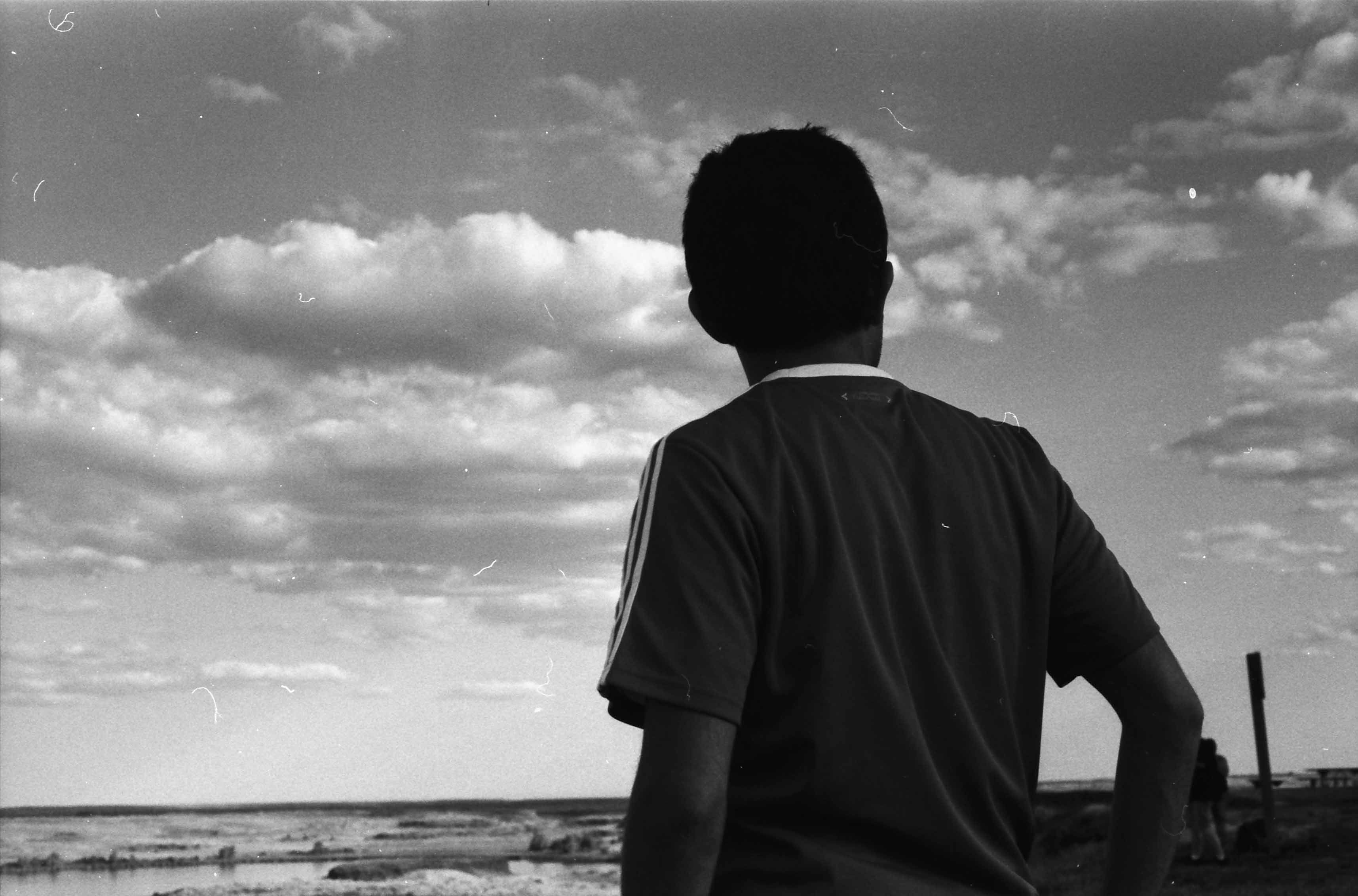“How’s life,” he asked. I appreciated the phrasing, which felt more genuine than other versions of the same query. It set a specific tone: world-weary but still intrigued in one’s fellow man, despite differences. He was about my age, thirties, perhaps Eastern European, an educated air but a few days unshaven. Nondescript casual clothing tonight, tired, dressed down on a weekend evening.
“Life is good, yeah,” I said, twice, reflecting. “A nice night, you know?”
“Yes.”
He’d approached me a moment before with a bus question, and was leaving us in two stops. He stood up front for that short distance and had asked the question above in the manner people often do, except his voice was of the sort incapable of flippant nothings; here was a man who meant the things he said. We started at either end of the conversation, his interest growing in spite of himself.
“Saturday night,” I was explaining. “Lots of friendly people, busy, which is nice because time goes by fast….”
“How long have you been doing this?”
“Um, nine years.”
“Nine years!”
“Yeah, I know it sounds crazy.”
“How old are you, like twenty-two, you been doing this since you were–”
“Ten years old, exactly!” His laugh was rich and gristly, more awake than he was. “No, I just turned thirty,” I added.
“Wow.”
“Yeah.”
“What d’you drink, I need to–”
“I don’t know! Water! Fruits and vege– I don’t know, I just, I feel lucky.”
“Holy cow.”
“Yeah, it’s fun job, yeah. I started it when I was going to school here and yeah, it’s been good.” A pause, and then– enough about me– “how ’bout you, how is life?”
“Good, I guess.”
“Yeah?”
“I don’t know,” he replied. “I’m figuring it out.” Again, world-weary, but a voice that hasn’t yet given up on life. We were leaving small talk behind.
“That’s a good answer.”
“Right.”
“Truthful, yeah.”
The conversation moved at its own unforced pace. We sat out the red light, near the end of the route, unhurried, two minds expanding on a half-empty bus.
“Were you working today, or school…?”
“No, finished school at 9pm, I went for a couple of drinks at friend’s house. I have Ph.D. at the U. Electrical engineering.”
“Dude, life is good! That sounds excellent!”
“It’s, it’s okay,”
“Working, seeing your friends, Ph.D. program, that’s outstanding!”
“Not bad,” he deadpanned. We laughed.
“The basics! Engineering, you said?”
“Yeah.”
“What kind of engineering?”
“Electrical. I change the lamps when they break!”
“Oh, awesome!” Most people stop there, at the assertion of accomplishment, but I’m can’t help my curiosity on what lies beneath: “d’you like it?”
“No. Not really.”
“Oh, no!”
“It’s okay, I don’t love it, but I like it, but it’s okay. We’ll see.”
“Okay, yeah. Maybe it can lead to something else.” I was trying to be hopeful, but could hear the stagnation in his words. We were way beyond pleasantries by this point. Neither of us verbalized what we both knew– that if you don’t like the schooling for it, you won’t like the job it results in. And jobs last lifetimes.
He reminded me of my Iranian friends, who so naturally dive into deep life discussion. This proclivity is obviously not limited to one people, but there are those among us whose conversations are not limited to intra-societal concerns, who very easily engage in questions of larger life, questioning how we live and why, why we act and think as we do. With real reflection he said,
“Maybe I can be… a bus driver, I think I would actually prefer that.”
“Well you know, okay, so I got my degree here also, in photography,”
“Photography?”
“Yeah, and it’s, I do not regret it, it’s a great experience, but–”
“This makes more money.”
“It does, but also, I really like people. I get a lot of joy and energy out of being around people.”
“That’s cool!”
“And, this is much more satisfying to me than working in a lab, or working for wedding photography, you know? And so, I need to be happy!”
“Important.”
“Yeah, really important.” Briefly, into the microphone: “okay guys, 45th and the Ave, University Way; next stop after this, is 45th and 11th.” And right back in: “yeah, just, this makes me feel alive,”
“Perfect,”
“Very important.”
“How long, how, what is your shift?”
“This is uh, swing shift, so, 5pm to 1am.”
“Oh so you’re just,”
“Yeah, back to downtown and,”
“Almost done,”
“One more thing, yeah.”
“This the 49, right?”
“Yeah.”
“I’ve taken this bus, drunk, many times,”
“Oh, good! That’s why I’m here! Happy to help!”
Charles Schulz once said that talking is what kids do. Conversation is when two adults come together and build a third thing, the result of their shared ideas, and when the two people part after that act of creation they each walk away slightly different than they were before.
We shook hands at the close of it, introducing each other by name. “Have a good rest of the weekend,” I said. Something about him was happier now. A spring in his shoulders.
“You too, have a good rest of your shift, and your life!”
“Ha! You too!”
Nathan Vass is an artist, filmmaker, photographer, and author by day, and a Metro bus driver by night, where his community-building work has been showcased on TED, NPR, The Seattle Times, KING 5 and landed him a spot on Seattle Magazine’s 2018 list of the 35 Most Influential People in Seattle. He has shown in over forty photography shows is also the director of nine films, six of which have shown at festivals, and one of which premiered at Henry Art Gallery. His book, The Lines That Make Us, is a Seattle bestseller and 2019 WA State Book Awards finalist.



